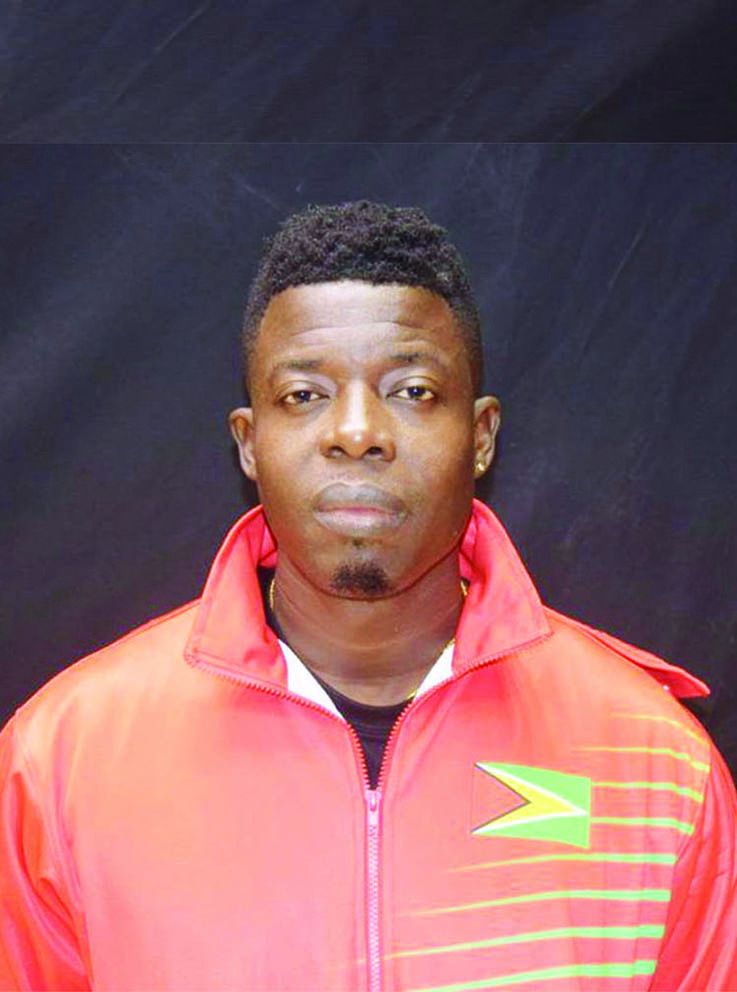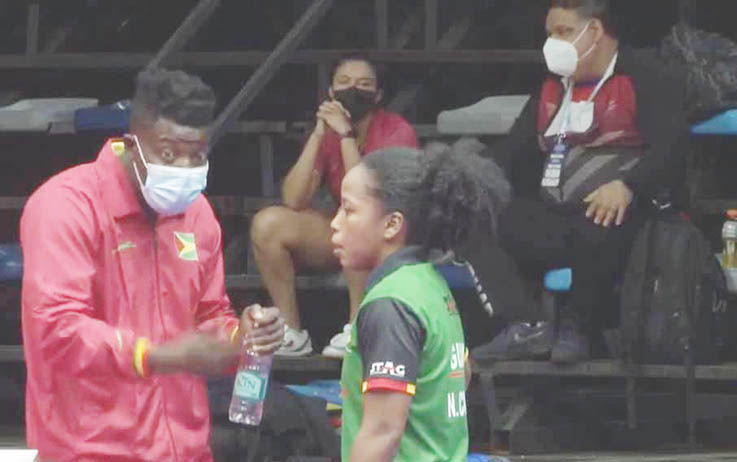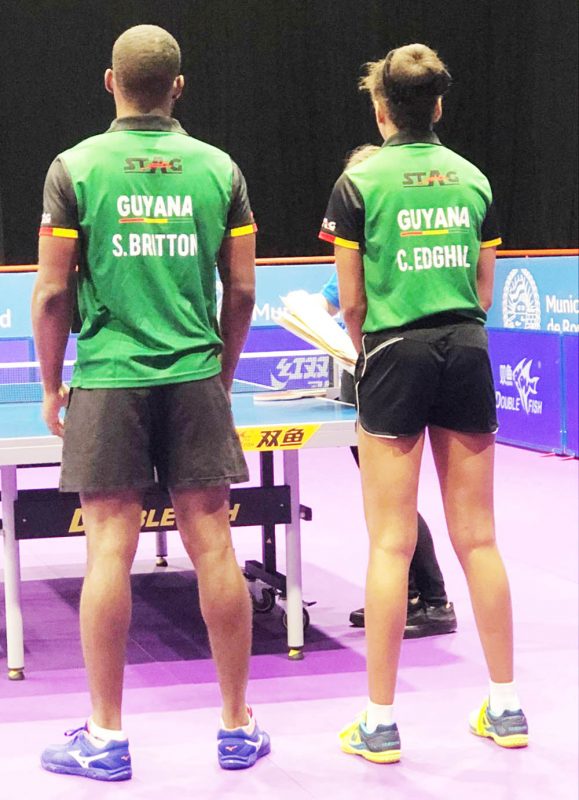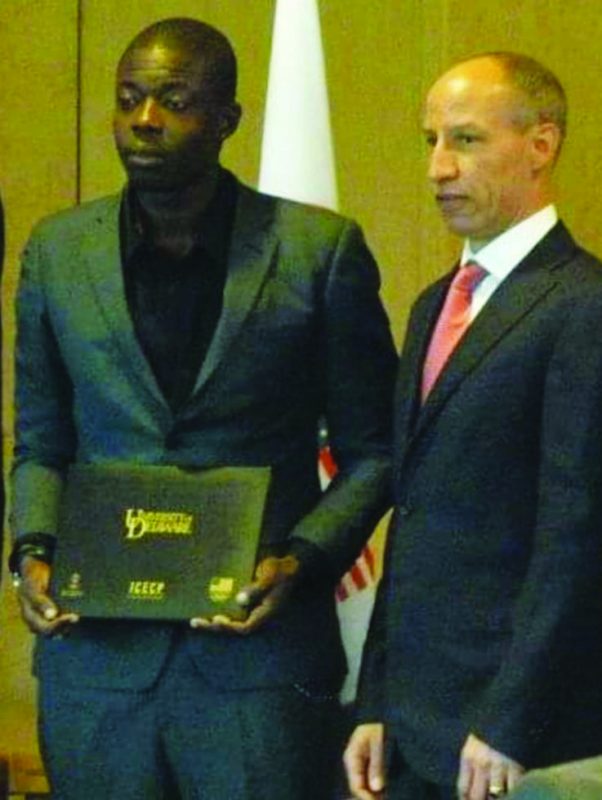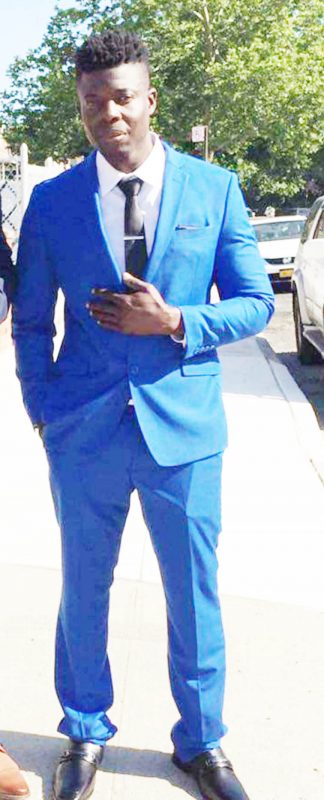Former national and Caribbean champion, US-elite and world-ranked table tennis player-turned-coach Idi Lewis is optimistic that should the state invest in providing sportsmen and women with their own homes, using revenue earned from oil and gas exploitation, local athletes would be a force to be reckoned with in the international arena.
“A lot of our elite athletes, myself included, never got to realise our true potential because of lack of exposure and financial support. That is one of the reasons I stopped playing,” Lewis said. “A lot of players before me and who came after me stopped because of the same reason. We lose to athletes who go all over the world to play but they are not better than us. They are just better prepared.”
Upbeat about sports moving forward, Lewis said that over his 30 years of playing and coaching, there has not been enough support for table tennis or sports in general in Guyana. Lewis, who was certified by the University of Delaware/International Coaching Enrichment Certificate Program and is registered with the International Table Tennis Federation, told Stabroek Weekend in a recent interview, “Table tennis has been pretty much a career for me.”
He said, “Sports is like the stepchild of the nation. It is not given priority. It is not taken seriously like in other countries where they invest in sports by encouraging sports tourism. We need facilities. Table tennis does not have a home. A lot of sports does not have homes.”
He noted that over the years, table tennis has shared space with over ten sporting disciplines at the Cliff Anderson Sports Hall.
With oil money, Lewis said, the opportunity is ripe for all sports to be given their own homes. “You can play anytime and run your own programmes without having to be allocated time to use a facility. We don’t want to be playing table tennis and we ducking from a hockey ball,” he noted. “We have been preparing for Caribbean Championships and the Commonwealth Games and we ducking hockey balls. It is very difficult to see our potential when playing under these conditions.”
For years, he said, there has been a culture of government supporting the Guyana Olympic Associa-tion (GOA) when in reality, the GOA through its affiliates should have been supporting government. “That culture needs to be changed,” he said.
Volunteer coaching,sports academy
Lewis is coach to Guy-ana’s highest ever world-ranked table tennis players Olympian Chelsea Edghill and Shemar Britton. Since he started coaching he has been based in Guyana.
“Chelsea, who came to Malteenoes Sports Club about 11 years ago, and I, just celebrated over ten years as coach and player,” he said.
He recalled that Maltee-noes member Andrew De Abreu wanted to start a table tennis programme at Malteenoes, so he contacted national coach Linden Johnson, now attached to the National Sports Commission, who recommended him as he already had deep ties with Malteenoes Sports Club.
“De Abreu contacted me so that is how the programme started,” he recalled. “I got a good friend Dwayne Dick, who is now over at the Titans, to assist. Chelsea was being trained by someone else. Her parents contacted me. She was about 10 or 11 years at the time. Her brother Kai Edghill, a national junior player, is very good also. Kai has also won a lot of medals at the Caribbean level.”
Lewis also coaches the national teams on assignments. “I usually travel with the senior teams. Some of the players I have competed against, but I have their respect. We have won a lot of medals at the Caribbean level and were ranked at number ten at the last Commonwealth Games,” he said.
He recently travelled with the junior national team to Argentina for the South American Games and then to the Dominican Republic for the Caribbean championships. The junior team, he said, is a group of young and talented, hungry guys with whom a lot of physical and mental work has to be done.
“I think they have the foundation that we can build on,” he enthused. “Right now we have Jonathan Van Lange who is just 15, but he is so good he is on the seniors’ team because of his talent and his skills set. Over 19, automatically you are senior.”
Lewis does not only coach elite athletes. He works with children who are less privileged or from depressed communities. “A lot of times, I see myself in these kids. I am not from a privileged background and I can point out a lot of accomplished players who are not from that background,” he said. “That does not apply to table tennis alone. It helps when you come from a certain background because you need funds for nutrition, equipment, travel among other expenses. I know many accomplished players who weren’t from a privileged background who were able to accomplish great things and I can point to players who were from that background and were not able to accomplish even quarter or half of what the other guys did. It is all about the person and their approach to sport and table tennis.”
Mainly a volunteer coach in Guyana who enjoys the success his players achieve, Lewis said, “I am basically giving athletes the opportunity that I have gotten and some that I have not gotten. I was never afforded that opportunity to try out for the Olympics but as a coach I was able to go to the Youth Olympics in China and the Tokyo Olympics due to Chelsea qualification for those games. That was amazing to me.”
He was excited at government’s proposal for the establishment of a sports academy as it has the potential to change the landscape of sports in Guyana. Sports organisations would target schools and communities throughout the country which would encourage mass participation, deepen the talent pool and it would be a game changer for Guyana, he said. “Last but not least, coaches will be paid,” he said adding, “every sportsperson is looking out for it but I’m hearing there is no budget for it. How can you have a sports academy without a budget?”
Lewis was born in Georgetown. He attended Richard Ishmael Secondary School where he started playing table tennis then completed his secondary education at Central High School. He did not favour team and contact sports. One day, his neighbour Mosi Kilkelly, who played table tennis, took him to the Diocesan Youth Centre in Subryanville where he introduced him to the sport; he liked it, but he was not dedicated.
He was about 13 years old when he started playing at the school level with some friends who became school champions. “Dennis France and I were Caribbean champions along with Andrew Daly who went on to be a world-ranked player and national player of the year. We came together at Richard Ishmael and bought plyboard which we placed over a couple of desks in our classroom. We played early in the mornings before classes, at lunch time and sometimes after school until we found Malteenoes Sports Club where we started training among ourselves,” he said.
Lewis continued his winning streak at Central High where he competed against some good players.
After a while he joined the YMCA Sports Club and for the first time had a coach in Dennis La Rose. “La Rose suffered from polio, but he is the only table tennis coach to date with the most junior Caribbean champions, me being one of them. He had about six of us from Guyana and when he went over to Trinidad he gained another two or three more. I was there with him for a few years,” he said.
Lewis became serious about table tennis after he was awarded a trophy for being the most improved player at a national table tennis schools’ championship. “At a tournament I had won one or two matches. The then national coach, Ashton Archer, made up an award just to give me a trophy for being the most improved player. Maybe he saw something in me. I didn’t think I did anything special to deserve it, but that little trophy meant the world to me and I thought maybe I can do something in table tennis,” he recalled.
Later on, when a national team was selected to represent Guyana in a tournament, Lewis among others was not selected. “There was a little uproar because the majority who they thought should have been on the team wasn’t. I think I was as good as the others as I had beaten some of them, but my name wasn’t in the conversation. Nobody mentioned Idi Lewis at all, and I was deeply hurt by that,” he said. “I took it very personal. I told myself I was not going to lose to any of these guys next year. That was a turning point. The next year, 1994, I was the best player in the country and in 1995, I won the bronze medal at the Caribbean Junior championship. The following year, I won the Caribbean Under-17 championship.”
Realising that to get better at his game he had to be in another environment, he started competing in the USA a year or two after leaving secondary school. “I needed more exposure than the local system was giving me, so I started training and competing in the US and I stayed there for many years,” he said. “I played at the semi-professional level. Nevertheless, I was back and forth always representing Guyana.”
According to Lewis, table tennis gave him all he has and made him who he is today. “I don’t know where I would be without table tennis. I owe so much to it. It gave me a direction in life. I think sports does that to children in general,” he mused. “Some of the values I learned from table tennis include working with other people as a team. You are not just learning a sport you are learning life skills. I can’t tell you how many countries I have travelled to because of table tennis.”
A lot of children from depressed communities who did not follow up on opportunities in sports might have other stories to tell, he said.
Pre-pandemic, he worked with a lot of children from challenged backgrounds. “Sometimes financially they cannot afford the fees and stuff. We have a support group at Malteenoes that helps as far as possible with travel, meals, equipment and such. Everyone looks out for each other. Once things get back to normal we hope to restart,” he said. “A lot of us are from different backgrounds so we remember where we came from.”
Sports and academics go together, he said. “From my experience, it teaches time management. When it is exams time, some children stop training and competing all together. You don’t see them again. Then there are children, like Chelsea and Shemar who continue to play right through high school and university. They never stopped playing because of exams and they both performed at the highest level in sports and academics,” he noted. “In the morning Chelsea finished writing the Caribbean Secondary Education Certificate exams and in the afternoon we left for China for the Youth Olympics which she had qualified for.”
Sports as a career in Guyana, he said, “at this time could be a little tricky.” He has had to mix a career in table tennis and business, or he would forever be in the red, he said. However, he noted that opportunities are available for scholarships, which a number of athletes pursue including a
number of former national players. “If you are good enough, you go to Europe where you get a contract. That is the option. You can make a decent living. Chelsea is in Europe,” he said.
One word of advice he emphasised is “discipline” in sports to not only be successful in any sporting discipline but in achieving life skills in general.
“You can be the most talented player in the world, but discipline and talent go together. It takes discipline to show up on time, to train as hard as you need to, to follow directions of coach or senior players. You can only go so far as a player using your talent but without discipline you cannot be that champion you want to be,” he advised.
